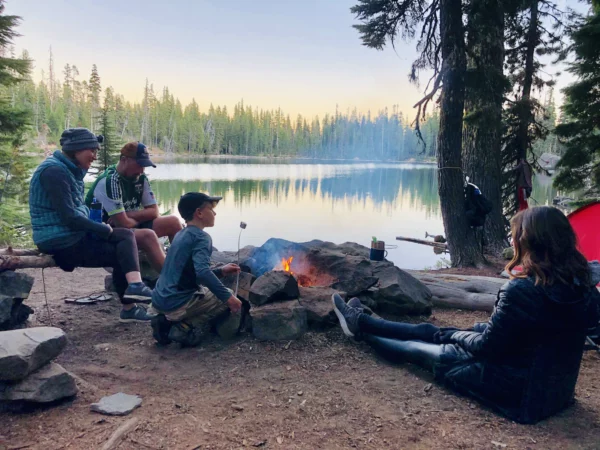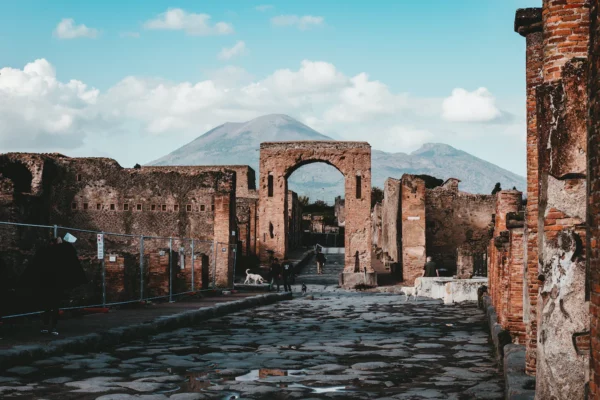
Safety Precautions for a Fun Family Camping Weekend

If you’re looking for a fun family activity that will create long-lasting memories, a camping trip may be just what you need. This is a chance to get outside, where you can be surrounded by nature and fresh air as you spend time with your loved ones.
There are countless activities to enjoy during a camping trip, and when electronics are out of the picture, then there are many opportunities to bond as a family. Of course, safety is the priority, so let’s talk about the basic safety precautions that every family should know before you get on the road.
Start With Smart Packing
The most important part of safe camping is to pack accordingly. You‘ll need the basics:
● Sleeping bags
● Sleeping pads
● Chairs
● Pillows
● Flashlight
● Lantern
● Tent
When it comes to purchasing or buying a tent, make sure it’s large enough to fit your whole family comfortably. Also, ensure it has a secure door that will keep animals out while being easy enough to open if you need to get out at night to use the bathroom or leave without waking the rest of the family.
Remember that you will be outside in the elements, so you’ll need to stay dry and warm. If you forget the basics, you could be in trouble before you even start. During the weeks leading up to your camping trip, create a list of the basics and add to it as necessary. If you have friends who enjoy camping, ask them for advice. If this is your first camping trip and you are unsure whether you will like it, then you can even ask to borrow their equipment so you don’t have to spend hundreds of dollars on new items that you may not use again.
It’s also important to think outside the box when it comes to proper packing. Remember that you likely will not have phone service while you’re out in the woods, so it’s a good idea to bring paper maps of the area, so you always know where you are. You should also bring a compass so you always know which direction you should go if you get lost while hiking.
First Aid Basics
Although you don’t need to be a professional survivalist, you should at least have a basic understanding of first aid before your big camping trip. To be prepared for anything, you need to bring a first aid kit. You can buy these at the store, or you can make your own. Your kit should include bandages, gauze, safety pins, tweezers, ointments, antiseptic wipes, and any specific medications that you or your children need on a regular basis.
Prepare for the potential dangers that can come around when you are surrounded by nature, including the potential for bug bites. Some of the most common types of bug bites that you may encounter in the woods include ants, bees, wasps, mosquitoes, and ticks. To prevent the possibility of bug bites, wear pants and long-sleeve shirts and try to avoid walking through long grass whenever possible. It’s a good idea to research the insects in your area so you can take the necessary precautions. And if you notice a bee hive near you, make sure to notify authorities for bee removal services with the help of a Honey Bee Removal Specialist.
It’s also important to be aware of the dangerous plants in your area. There are certain plants that you should avoid at all costs, including poison ivy, oak, and sumac. All of these plants irritate the skin, and they can ruin your weekend. Avoid eating any berries in the wilderness unless you know for certain they are non-toxic.
Prepare for The Unexpected
Many people romanticize camping, and although it can be fun, remember that you are out in the wilderness, and you may find yourself in dangerous situations. So, it’s important to prepare for the unexpected.
When you get to the campground, one of the first things you should do is identify where the nearest ranger station is located. If you are still looking for it, ask a ranger or employee before you go too far into the woods. A ranger may be the only person who can help you in an actual emergency.
Getting lost in the woods is a potential emergency situation for which you must be ready. To prepare for this possibility, plan to bring at least enough food to feed your family for three days or more. If you do get lost, your flashlight could run out of batteries. To overcome this obstacle, you should pack solar lanterns and headlamps that you can use to navigate the wilderness in times of need.
There are many safety precautions to keep in mind when you go camping with your family. Remember these essential tips, and you can have a wonderful time in the wilderness with your loved ones.














































